Women’s Equality leader: being black and bisexual shaped my politics
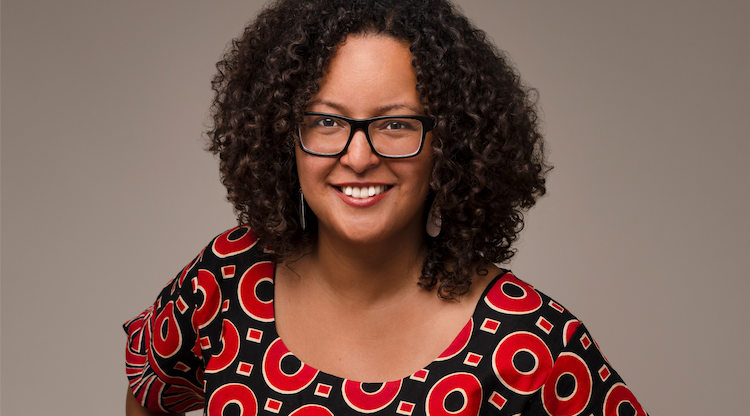
Mandu Reid, leader of the Women’s Equality Party. (Cairis Grant-Hickey)
Mandu Reid is the first black leader of a political party in UK history. She’s also the first out bisexual woman.
It’s a part of her identity she’s always had to defend, both in and outside of the LGBT+ community. But having grown up as a mixed-race child in South Africa’s apartheid era, defending her identity is something she’s well accustomed to.
“I think my bisexual identity is quite influential, to be honest, in a similar way to how my racial identity is,” she told PinkNews.
“As a bisexual woman, I’m used to getting hostility from, frankly, the lesbian community as well as the heterosexual community. There’s a suspicion about the truth in my sexual orientation, and I’ve had to navigate that my whole life.
“I’ve had that on racial lines too. Being a mixed-race person, there’s often situations where there might be pressure to present a strong allegiance one way or another. And I’m like, ‘Yes, but there are multiple perspectives at play here!’”
The simplification people often make is, ‘Oh, you get the best of both worlds, you’re greedy,’ or whatever. But in my experience, it’s the opposite.
Her experiences straddling two sides of the same culture have given her a unique perspective — one that she’s determined to bring into British politics.
“[Being bisexual has] shaped me in how I deal with conflict and challenges, because I’ve often had to justify myself to people,” she explained.
Like many bisexual people, Mandu has faced frustrating stereotypes about her sexuality. “The simplification people often make is, ‘Oh, you get the best of both worlds, you’re greedy,’ or whatever,” she said. “But in my experience, it’s the opposite.
“If we’re talking about dating, I actually find it harder to meet people who are comfortable with my bisexuality. It’s not an enormous pool, because the proportion of people who can handle it, who aren’t threatened by it, is very small.”
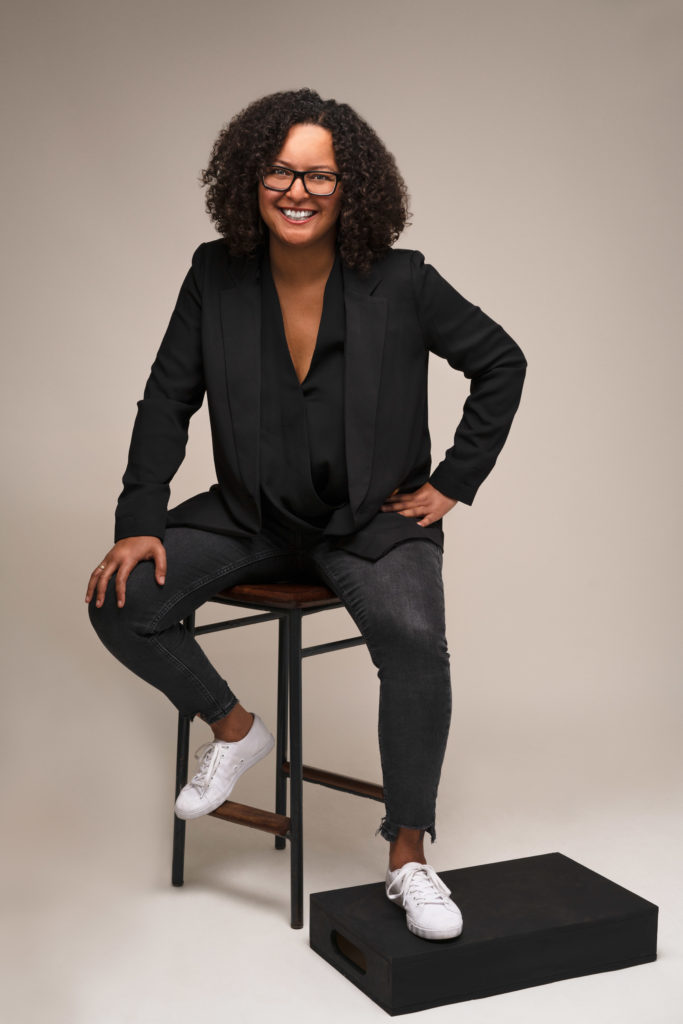
Mandu discovered she was bisexual at the age of 15 (Supplied/Cairis Grant-Hickey)
It is, no doubt, particularly frustrating to find this discrimination coming from her fellow LGBT+ community. But Mandu is able to take the experience and use it to her advantage.
“If I’m dating somebody, I’ve got to empathise with their fears, right? So my way of thinking and dealing with conflict resolution has been shaped by having to understand people’s fears and concerns in order to create harmony between me and them.
“It’s how I approach any political issues that we as a party are trying to deal with,” she added.
I’m expecting it to get nastier
It will serve her well as she navigates an increasingly tense political environment in which being a woman, let alone a bisexual woman of colour, means she’s likely to be disproportionately targeted by abuse.
Having only taken the helm of the WE Party in April this year, Mandu’s managed to stay relatively under the radar so far, but she admitted she’s “expecting it to get nastier.”
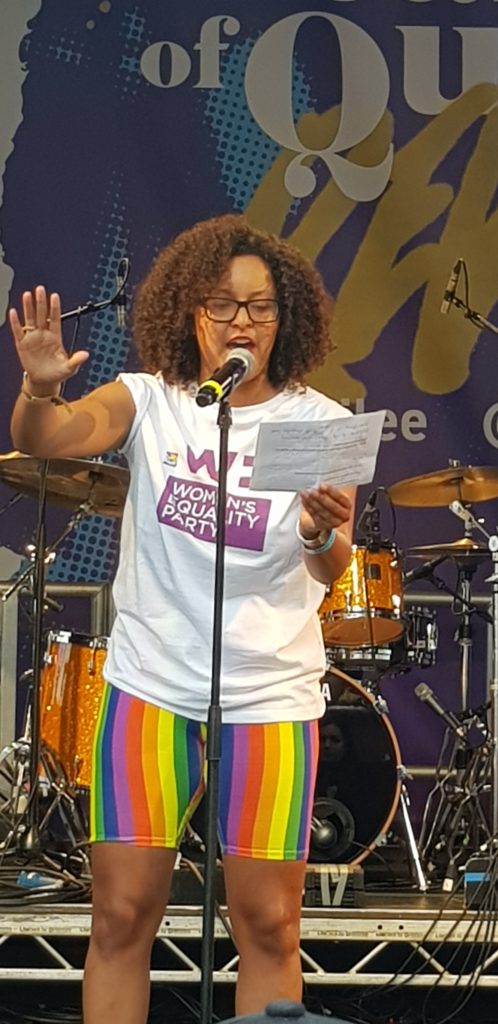
Mandu speaking at Pride in London: “I passionately believe that our light shines brightest when we celebrate each other” (Supplied/WE Party)
Division over transgender rights
Unfortunately, the WE Party has frequently found itself at the centre of one of the ‘nastiest’ discourses in both feminism and LGBT+ spheres: transgender rights.
In their policy document, the WE Party says it supports the right of all to define their sex or gender or to reject gendered divisions as they choose.
In spite of this, the party’s members have frequently fallen afoul of trans advocates.
Last year they sacked their official spokesperson for calling parents of transgender children “abusive,” while the party’s former leader, Sophie Walker, was strongly criticised for pledging to “protect women’s sex-based rights” and “fight for single-sex spaces.”
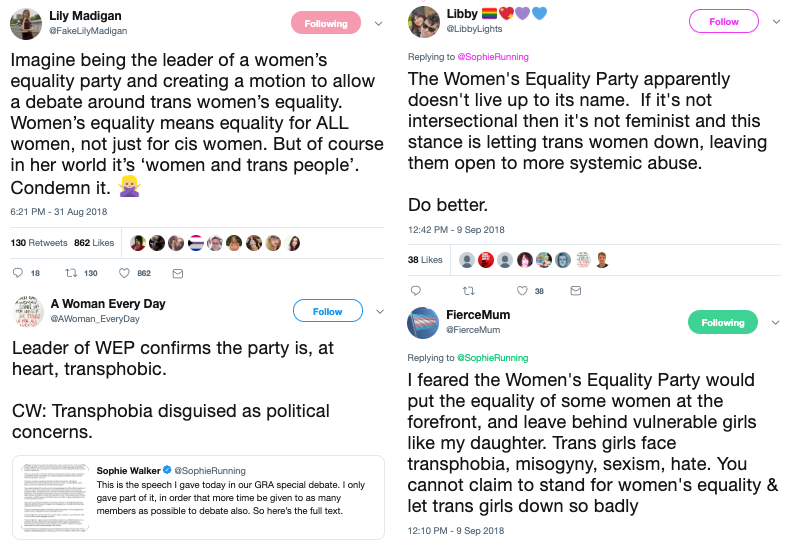
The WEP was widely condemned on Twitter following a debate on the Gender Recognition Act
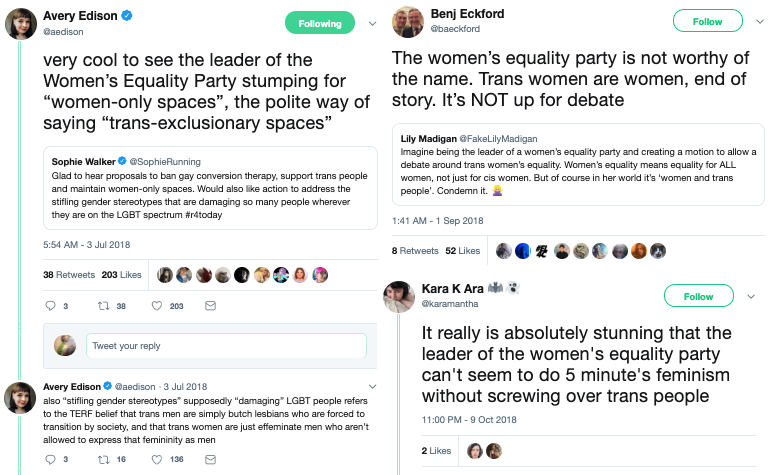
The controversy preceding Mandu makes her new role a daunting one. She admitted there is a party division on transgender issues, but is determined to bring the two sides together.
“I think the leadership that’s been missing in other parties [is one] that acknowledges that what’s at the source of this friction, this tension, this conflict, is mistrust and fear,” she said.
“You’re not going to get a glorious, shiny consensus on an issue like this, but what you damn well could have, if you handle it properly, is to reach a point where people understand each other a bit better … and are able to move from their entrenched positions where they’re just chucking grenades on each other.”
Progress moves at the speed of trust
With this in mind, she intends to hold a party discussion, similar to the citizen’s assembly prior to the Irish abortion referendum, which will allow the party’s members to “explore, unpick and understand” the trans debate, helping people “acknowledge the fear and mistrust and move forward.”
“Progress moves at the speed of trust,” she explains.
Spotlight on trans issues creates “a hostile environment”
While Mandu’s motives are sincere, it’s a risky move considering the huge backlash the party received less than a year ago for holding a similar discussion.
And many trans rights campaigners argue that the very act of debating these issues is inherently harmful to trans people.
Labour’s equalities chief Dawn Butler recently said it was a “f**king disgrace” that the government allowed such conversations to happen by stalling planned reforms to the Gender Recognition Act, giving rise to a “hostile environment” for trans people in the UK.
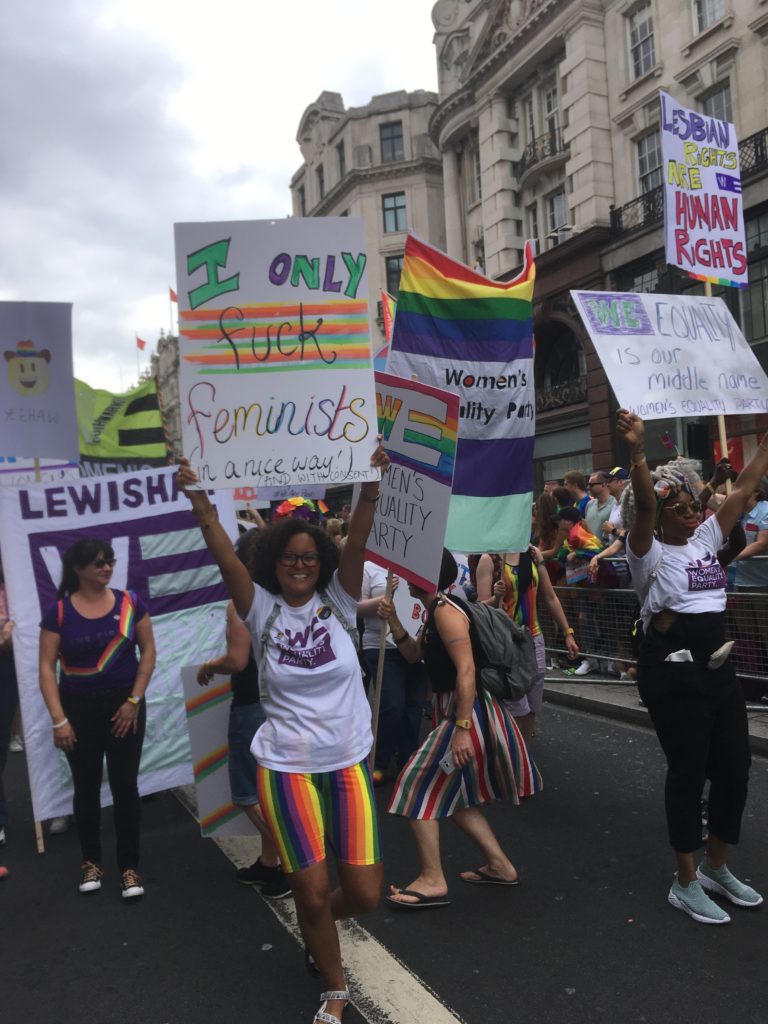
Mandu marching at Pride in London (Supplied/WE Party)
Mandu argues that what makes the WE Party different from the Conservatives in this respect is that they are holding this discussion for “the right reasons,” while the Tories did it “for a quick win.”
“This is something that is so important, and I want us to get it right,” she said. “I’ve observed what others have tried to do and I’ve seen the side effects from that, and that’s exactly what I want us to avoid.”
It’s clear that she herself supports trans rights, telling PinkNews that “trans women are women.”
But in adding the caveat: “But they’re women among a rich tapestry of what it means to be a woman, of which we all are a part,” it is equally clear that she has a difficult line to toe in representing two strongly opposing sides of her party.

